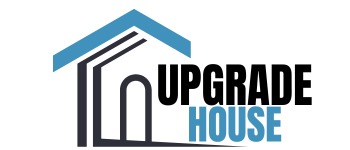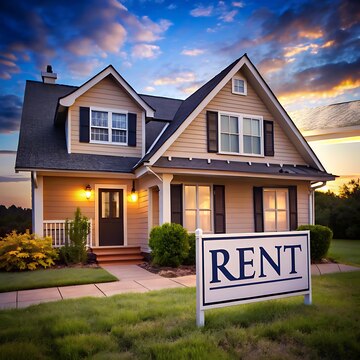Discover everything you need to know about rent-to-own homes near you. This comprehensive guide covers benefits, key considerations, financial aspects, and more. Navigate the path to homeownership with confidence.
Understanding Rent to Own Homes
When searching for “rent to own homes near me,” it’s essential to grasp the concept of rent-to-own agreements thoroughly. Rent-to-own homes are properties where you rent the home with the option to purchase it later. This arrangement often appeals to individuals who may not have immediate access to the funds needed for a down payment or those who want to test a neighborhood before committing to a purchase. The contract typically involves a portion of your monthly rent being credited towards the purchase price of the home. This setup can provide a pathway to homeownership for those who may not qualify for traditional mortgages due to credit issues or financial constraints. Understanding the nuances of such agreements, including the lease term, option fee, and purchase price, is crucial before entering into a rent-to-own contract.
Benefits of Rent to Own Homes
The appeal of rent-to-own homes extends beyond merely providing an opportunity to eventually own a property. One of the significant advantages is the ability to lock in a purchase price at the beginning of the lease term. This can be particularly beneficial in a rising real estate market, as it allows you to potentially buy the home at a lower price than it might be worth in the future. Additionally, rent-to-own agreements often come with the advantage of being able to live in the home and experience the neighborhood firsthand before making a long-term commitment. This arrangement can be ideal for those looking to ensure the area meets their needs and preferences before making a purchase.
How to Find Rent to Own Homes Near You
Finding rent-to-own homes near you requires a strategic approach. Start by leveraging online real estate platforms that offer advanced search filters for rent-to-own properties. Websites like Zillow, Realtor.com, and Rent.com provide extensive listings and allow you to filter by location, property type, and price range. Local real estate agents can also be invaluable in your search, as they may have access to exclusive listings and insights into upcoming opportunities. Additionally, consider exploring local classified ads, community boards, and social media groups where individuals may list rent-to-own properties. Networking within your community can also lead to discovering hidden gems that may not be widely advertised.
Key Considerations in a Rent to Own Agreement
Before entering into a rent-to-own agreement, several key considerations must be addressed to ensure the arrangement aligns with your goals and financial situation. First, carefully review the lease term and understand how long you have to decide whether to purchase the home. The option fee, typically a percentage of the home’s purchase price, should be clearly defined and understood, as this amount is usually non-refundable. Additionally, examine the terms related to rent credits, which are portions of your monthly rent that go towards the purchase price. Ensure that these credits are applied as agreed and that there are no hidden fees or conditions that could impact your decision.
The Financial Aspects of Rent to Own Homes
Financial planning is a crucial aspect of renting to own a home. Beyond the monthly rent, which may be higher than a standard rental due to the rent credits, you should also be aware of the upfront option fee. This fee is typically a percentage of the home’s purchase price and may range from 1% to 5%. Additionally, it’s essential to budget for maintenance and repairs, as some rent-to-own agreements may require you to handle these expenses. Understanding the total cost of the arrangement, including any potential rent increases, is vital for effective financial planning. Furthermore, ensure you have a clear understanding of the home’s eventual purchase price and any interest rates if applicable.

Legal Considerations in Rent to Own Agreements
Legal considerations are paramount when entering into a rent-to-own agreement. Ensure that the contract is thoroughly reviewed and understood before signing. It may be beneficial to consult with a real estate attorney to review the terms and conditions of the agreement. Key aspects to examine include the length of the rental period, the option fee, the amount of rent credited towards the purchase price, and the terms of the eventual purchase. Additionally, be aware of any legal implications if you decide not to purchase the home at the end of the rental period. Understanding these legalities can help prevent potential disputes and ensure a smooth transaction.
Negotiating the Terms of a Rent to Own Agreement
Negotiating the terms of a rent-to-own agreement can significantly impact the overall success of the arrangement. Approach negotiations with a clear understanding of your needs and preferences. Start by discussing the option fee and ensuring it aligns with your budget. Negotiate the length of the rental period and the amount of rent credits to be applied towards the purchase price. Additionally, consider negotiating maintenance responsibilities and any potential rent increases. Open and transparent communication with the property owner or landlord can lead to a mutually beneficial agreement and a smoother path to homeownership.
Assessing Property Condition in Rent to Own Homes
Assessing the condition of the property is a crucial step before committing to a rent-to-own agreement. Conduct a thorough inspection of the home to identify any potential issues or necessary repairs. This assessment should include checking the structural integrity, plumbing, electrical systems, and overall condition of the property. It may be beneficial to hire a professional home inspector to provide an unbiased evaluation. Addressing any concerns or repairs before finalizing the agreement can prevent future disputes and ensure that the home meets your expectations.
The Role of a Real Estate Agent in Rent to Own Homes
A real estate agent can play a significant role in finding and negotiating rent-to-own homes. Agents have access to a wide range of listings and can provide valuable insights into the local real estate market. They can assist in identifying properties that meet your criteria and guide you through the negotiation process. Additionally, real estate agents can help ensure that the terms of the rent-to-own agreement are fair and in your best interest. Their expertise and knowledge can be instrumental in navigating the complexities of rent-to-own transactions.
Comparing Rent to Own Homes with Traditional Home Buying
Comparing rent-to-own homes with traditional home buying is essential to determine which option best suits your needs. Traditional home buying typically involves a down payment, mortgage financing, and immediate ownership. In contrast, rent-to-own agreements provide the opportunity to rent a property with the option to purchase it later, often with less upfront financial commitment. Consider factors such as the current real estate market, your financial situation, and long-term goals when deciding between these options. Each approach has its advantages and potential drawbacks, so evaluating both can help you make an informed decision.
The Impact of Market Conditions on Rent to Own Homes
Market conditions can significantly impact rent-to-own homes and their viability. In a rising real estate market, rent-to-own agreements can offer the advantage of locking in a purchase price before property values increase. Conversely, in a declining market, the terms of the agreement may need to be adjusted to reflect changes in property values. Stay informed about local market trends and work with a knowledgeable real estate professional to navigate these conditions effectively. Understanding the market dynamics can help you make strategic decisions and optimize your rent-to-own experience.

Maintenance Responsibilities in Rent to Own Homes
Maintenance responsibilities are an important consideration in rent-to-own agreements. While some agreements may stipulate that the landlord is responsible for major repairs, others may require tenants to handle maintenance tasks. Clarify these responsibilities before signing the agreement to avoid misunderstandings. Regular upkeep and maintenance can help preserve the property’s condition and ensure that it meets your expectations. Additionally, addressing maintenance issues promptly can prevent more significant problems from arising and contribute to a smoother transition to homeownership.
Evaluating the Home’s Resale Value
Evaluating the potential resale value of the home is a prudent step in the rent-to-own process. Research the property’s value in the current market and consider factors that could impact its future resale value, such as location, condition, and local development plans. Understanding the home’s potential resale value can help you assess whether the purchase price is reasonable and if the investment aligns with your long-term financial goals. This evaluation can provide valuable insights and guide your decision-making process throughout the rent-to-own agreement.
The Future of Rent to Own Homes
The future of rent-to-own homes is influenced by various factors, including market trends, economic conditions, and changes in housing policies. As the real estate market evolves, rent-to-own agreements may become more or less common depending on demand and affordability. Stay informed about industry developments and market conditions to adapt to potential changes. The flexibility and benefits of rent-to-own arrangements may continue to evolve, providing new opportunities for individuals seeking a pathway to homeownership.
Success Stories in Rent to Own Homes
Success stories of individuals who have successfully navigated rent-to-own agreements can provide valuable insights and inspiration. Learning about others’ experiences can help you understand the potential benefits and challenges of this approach. Success stories often highlight effective strategies for negotiating terms, managing finances, and overcoming obstacles. These real-life examples can offer practical advice and encourage you as you embark on your own rent-to-own journey.
Common Mistakes to Avoid in Rent to Own Agreements
Avoiding common mistakes in rent-to-own agreements can help ensure a successful outcome. Common pitfalls include failing to thoroughly review the contract terms, neglecting to address maintenance responsibilities, and not budgeting for additional costs. Additionally, be cautious of agreements with unfavorable terms or hidden fees. By being aware of these potential mistakes and addressing them proactively, you can mitigate risks and increase the likelihood of a positive rent-to-own experience.
Resources for Rent to Own Home Seekers
Several resources can assist individuals seeking rent-to-own homes. Online platforms provide listings and detailed information about available properties. Real estate agents offer expertise and guidance throughout the process. Additionally, community organizations and local government programs may provide support and resources for prospective homeowners. Leveraging these resources can enhance your search for rent-to-own homes and provide valuable support in achieving your homeownership goals.
The Psychological Benefits of Rent to Own Homes
The psychological benefits of rent-to-own homes can be significant, offering a sense of stability and future planning. Knowing that you have the option to purchase the home can provide peace of mind and reduce the stress associated with temporary housing. Additionally, experiencing a sense of ownership and personalizing the space can contribute to overall satisfaction and well-being. Understanding these psychological aspects can help you appreciate the full range of benefits that rent-to-own agreements offer.
Preparing for the Transition to Homeownership
Preparing for the transition from renting to owning a home involves several key steps. Start by reviewing your financial situation and ensuring that you are ready for the responsibilities of homeownership. This includes budgeting for mortgage payments, maintenance, and potential repairs. Additionally, familiarize yourself with the home buying process and any legal requirements associated with purchasing the property. Adequate preparation can help ensure a smooth transition and a successful path to homeownership.
Conclusion
Navigating the path to homeownership through rent-to-own agreements requires careful consideration and strategic planning. By understanding the concept, benefits, and key considerations of rent-to-own homes, you can make informed decisions and successfully pursue your homeownership goals. Leveraging available resources, avoiding common mistakes, and preparing for the transition can contribute to a positive and fulfilling experience. Whether you are new to the concept or looking to explore rent-to-own opportunities, this comprehensive guide provides valuable insights and guidance for achieving your dream of homeownership.
Read also: is real estate investment trusts a good career path?






